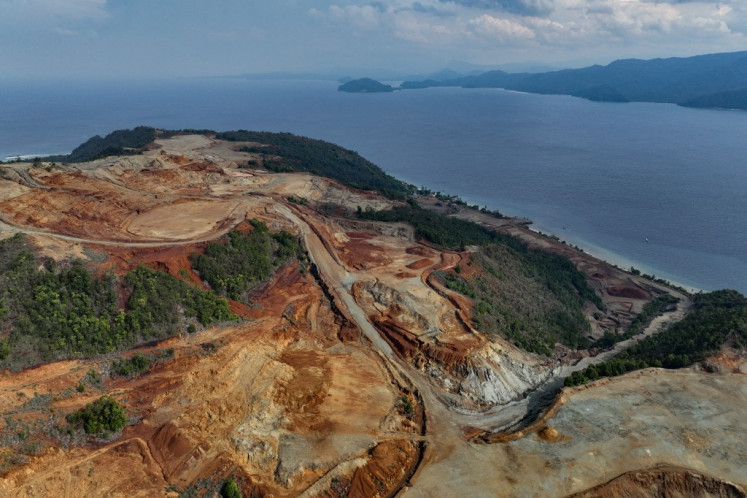Warning status raised for Mt. Papandayan
The Volcanology and Geological Disaster Mitigation Center over the weekend raised the warning status of Mount Papandayan’s volcanic activities in Garut regency, West Java
Change text size
Gift Premium Articles
to Anyone

T
he Volcanology and Geological Disaster Mitigation Center over the weekend raised the warning status of Mount Papandayan’s volcanic activities in Garut regency, West Java.
The 2,665-meter volcano had been in the second level of volcanic activities status since April 16, 2008, and has continued experiencing increases in its volcanic activities.
“After studying data, we decided to raise its status [from the second to the third level],” center chairman Surono told The Jakarta Post via a text message on Saturday.
The second level, is usually marked by increasing seismic activity, other volcanic events and visual changes around the crater include magmatic, tectonic or hydrothermal disturbances, but no imminent eruption.
The third level is marked by an intense increase of seismic activity and obvious changes in visual observations of the crater. Based on data analysis, activity will be followed before an eruption. If a trend of intense seismic activity continues, an eruption might be possible within two weeks.
Surono further explained that the increase in the activities was indicated by gas blasts in Kawah Walirang, Kawah Manuk and Kawah Balagadama craters. His staff noted smoke spewing from the wall of Kawah Baru and Kawas Emas craters between Aug. 8 and Aug. 12, 2011, with heights of 20-50 centimeters.
They also detected an anomaly of CO2 spewing around Kawah Mas, Kawah Balagadama, Puncak Walirang caters, as well as around the southern parking area.
Observations conducted from June 1 to Aug. 12 also showed increases in both tectonic and volcanic earthquakes at the volcano.
The latest observation done from Aug. 1 to Aug. 12 recorded 37 deep volcanic earthquakes, 227 shallow volcanic earthquakes, 53 distant tectonic earthquakes and eight local tectonic earthquakes.
These, according to Surono, have increased the temperature of the craters of the volcano, including on Kawah Manuk, where the temperature increased from 103.6 degrees Celsius degree in June to 107.5.
“This has the potential of spewing toxic gas or a direct gas eruption,” Surono said.
Other possible disasters, he said, include landslides around the craters of Mt. Papandayan that can further incite lava flows.
There is presently a pile of almost three million tons of volcanic material on the upper stream of the Cibereum and Ciparugpug rivers.









